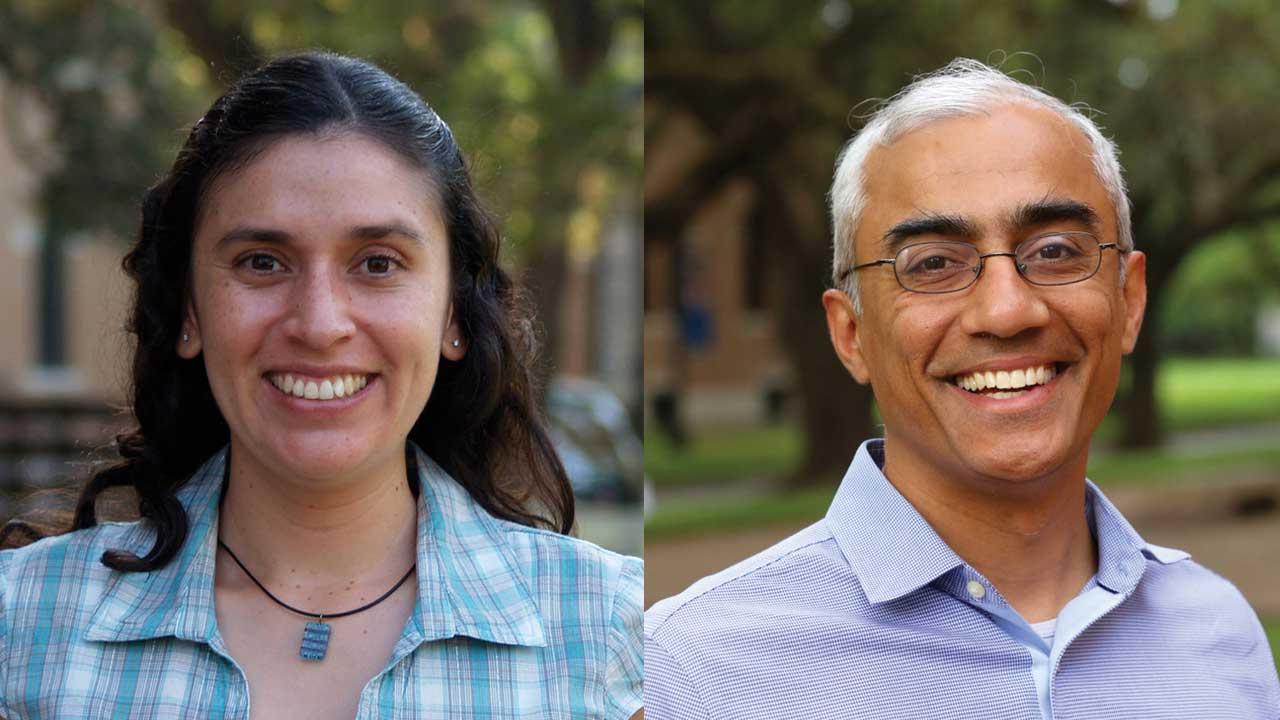Ashutosh Sabharwal, the Ernest Dell Butcher Professor and chair of electrical and computer engineering (ECE) at Rice University, and a pioneer in two areas of wireless and health technologies, has received, along with his former graduate student, Melissa Duarte, SIGMOBILE's 2021 Test-of-Time Award for their paper demonstrating the feasibility of full-duplex wireless radio systems.
SIGMOBILE is the Special Interest Group on Mobility of Systems, Users, Data & Computing of the Association for Computing Machinery (ACM). Its Test-of-Time Award recognize papers that have had a “sustained and significant impact in the SIGMOBILE community over at least a decade.”
The award’s citation says:
“Full-duplex has been a long-standing open problem in wireless networking — can we design wireless radios that transmit and receive at the same time and frequency without interference? These two papers demonstrated the feasibility of practical full-duplex systems, spawning an entirely new area for research exploration. In doing so, they have delivered strong impact on academia and influenced industry deployments of next-generation wireless systems.”
Duarte, Sabharwal’s co-author on the papers, earned her Ph.D. in ECE from Rice in 2012 and now works as a senior researcher at Huawei Technologies in Paris. Their paper, “Full-duplex wireless communications using off-the-shelf radios: Feasibility and first results,” was presented in 2010 at the Asilomar Conference on Signals, Systems and Computers.
Sabharwal earned his Ph.D. in electrical engineering from Ohio State University in 1999 and joined the Rice faculty that year. He works in two distinct research areas: fundamental principles and novel experimental platforms for advanced wireless networking, contributions which led to his elevation to IEEE Fellow status in 2014.
He is the founder of WARP (Wireless Open-Access Research Platform), a scalable, programmable wireless platform used to prototype advanced wireless networks. WARP spawned Mango Communications, founded by Sabharwal’s doctoral student Patrick Murphy, and has been adopted by more than 150 organizations worldwide. He was awarded the 2019 ACM Test-of-Time Award for the WARP project, and is among the few researchers awarded the ACM Test-of-Time Award more than once.
Sabharwal is known for inventing full-duplex wireless, which doubles wireless network capacity and has been adopted for next-generation communication standards. For that invention he received the 2017 IEEE Jack Neubauer Award and the 2018 IEEE Communications Society Award for Advances in Communications. He leads RENEW (renew-wireless.org), an NSF-sponsored National Wireless Testbed project, and co-leads the ARL-Rice RUNSRA Center.
More than a decade ago, Sabharwal started Scalable Health Labs, dedicated to the development of advanced medical devices. His work in healthcare technologies has led to multiple startups and licenses. He is a co-founder of Cognita Labs, which is developing multiple complementary digital technologies for the diagnosis and management of chronic lung diseases.
He leads two center-scale projects in healthcare: NSF-funded “See below the skin” (seebelowtheskin.org), which uses computational cameras, and as Rice lead, an NSF Engineering Research Center, PATHS-UP (pathsup.org), to develop healthcare technologies for underserved populations.
Last year, Sabharwal was elected a fellow of the National Academy of Inventors. He served as the chair of the ECE Corporate Affiliates program and director of the Center for Multimedia Communication. His research has been funded by NSF, National Institutes of Health, Army Research Labs, IBM Research, Xilinx Inc., Facebook and Microsoft Research. He was awarded the 2018 Teaching and Mentoring Award by the Rice Graduate Student Association and the 2019 ACM Community Contributions Award.

